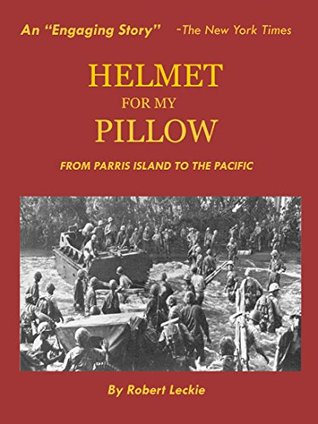More on this book
Community
Kindle Notes & Highlights
Read between
March 20 - March 28, 2010
vituperation.
The man who has had it roughest is the man to be most admired. Conversely, he who has had it the easiest is the least praiseworthy.
It is an American weakness. The success becomes the sage. Scientists counsel on civil liberty; comedians and actresses lead political rallies; athletes tell us what brand of cigarette to smoke.
Like the light that comes up suddenly in a darkened theatre, daylight came quickly. Dawn came, and so myself came back to myself. I could see the pale outlines of my comrades to right and left, and I marveled to see how tame my tree could be, how unforbidding could be its branches. I know now why men light fires. * * *
This is the terror I mean; this is the terror that strangles reason with the clawing hands of panic. I saw it twice, I felt it pluck at me twice. But it was rare. It claimed few victims. Courage was a commonplace. It formed a club or corporation, much as do those other common things upon which men, for diverse reasons, place so great a value; like money, like charity. For it is the common on which the exclusive rests.
There was this verse, which I have seen countless times, before and since, the direct and unpolished cry of a marine’s sardonic heart: And when he gets to Heaven To St. Peter he will tell: One more Marine reporting, sir— I’ve served my time in Hell.
Youth rebels and age conserves; between them, they advance. The Marines will cease to win battles the moment either camp achieves clear-cut ascendancy.
They dug from their pockets and wallets those rubber balloonlike contraptions for which they had no longer any use, and they inflated them. These they set adrift on the currents of wind whipping about the fantail. Soon the space between the docks and our departing transport was filled with these white and sausage-shaped balloons—dozens, then hundreds, then thousands of them—dancing in the breeze, bouncing up and down, seeming to flutter even on the wind of noise raised between the ever-separating camps, the hoarse and vulgar hooting of the marines and the shrill and pseudo-shocked shrieking of
...more
Now, to pity the enemy either is madness or it is a sign of strength. I think that with the First Marine Division on New Britain it was a sign of strength.
An officers’ mess is one of the surest barometers of military success. So long as the officers continue to pig it with the men, there is danger of defeat. But once the officers’ mess appears—raised almost on the bodies of the foe, contrived of sticks and pieces of canvas or perhaps only an imaginary line like a taboo—once this appears, and caste is restored, we know that victory is ours.
So a boulder crushed the life and the pitiful boasting out of him. We felt sad, because Loudmouth had always seemed so much a waif, so forlorn. The others might die beneath the falling trees—the “widow-makers” as we called them—and no one would feel melancholy. But with Loudmouth, it did not seem fair. Loudmouth never seemed really to be involved in the war, he seemed more spectator than participant. And that was how he died, as though a foul ball had risen from behind home plate and brained him. He sat beside his hammock and a boulder blotted him out.
Keep vaunting head over heart, and soon the head will arrive at the complete folly of any kind of fight and meekly surrender the treasure to the first bandit with enough heart to demand it.
I lay in the hospital ward and the Sign of the Mushroom rose over the world. I lay in a hospital for the tenth time since I had chosen to enter the Marines. My comrades and I had suffered in our persons as the world had suffered in her peoples since the Nazi swastika had clasped the Japanese rising sun in spidery embrace—the whole world, racked for six years like a giant organism; and now the Sign of the Mushroom was rising over it. The ward in Newton D. Baker Army Hospital in Martinsburg, West Virginia, was quiet—shocked, still. The impersonal radio voice said, “America has just dropped the
...more
Now I know. For myself, a memory and the strength of ordeal sustained; for my son, a priceless heritage; for my country, sacrifice. The last is enough for all, for it is sacrifice—the suffering of those who lived, the immolation of those who died—that must now be placed in the scales of God’s justice that began to tip so awkwardly against us when the mushroom rose over the world. It is to sacrifice that men go to war. They do not go to kill, they go to be killed, to risk their flesh, to insert their precious persons in the path of destruction.
But sacrifice says: “Not the blood of your brother, my friend— your blood.”
That is why there are no glorious living, but only glorious dead. Heroes turn traitor, warriors age and grow soft—but a victim is changeless, sacrifice is eternal.


